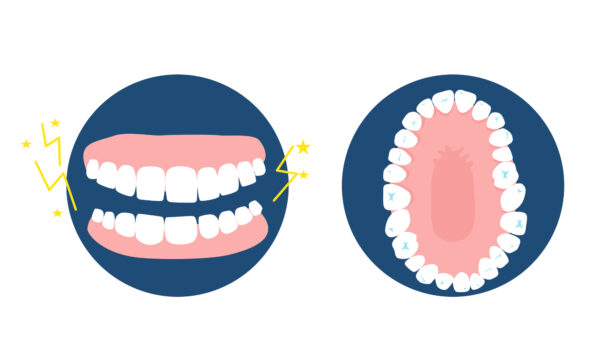
Besides its aesthetic benefits, Botox can improve a patient’s quality of life by treating muscle-related mouth disorders. Botox injections relax jaw muscles, relieving bruxism.
Can dental hygienists give Botox? Please take a seat and get ready to delve into all the intricacies of this captivating question.
Now, let us go into the topic of dental hygienists. With their extensive knowledge of oral health, dental hygienists are skilled professionals traditionally acknowledged for preserving the aesthetics of our teeth.
Can dental hygienists delve into the domain of Botox injections?
The solution is intricate. In certain states or nations, dental hygienists are authorized to administer Botox, even though they may not necessarily get specific training for this purpose. These scenarios often require further expertise and licensing in the administration of Botox.
Since state regulations vary, it is best to check with your own state’s medical board to get the most up-to-date details. The various medical boards’ contact details are listed on https://dentox.com/medical-dental-and-nursing-state-boards/.
What is the cause of the overlap?
Botox can also be used to address dental issues. Some dental professionals argue that Botox injections can be used to treat temporomandibular joint dysfunction (TMJ), a condition characterized by jaw pain resulting from excessive muscular activity.
However, it is crucial to keep in mind that the prevalence of the practice differs significantly depending on local legislation. While many areas may embrace the idea of dental hygienists specializing in Botox, others may choose to maintain a clear distinction between the two fields.
Professional training programs are established in regions where dental hygienists are authorized to administer Botox treatments. These courses typically cover the anatomy of facial muscles, proper injection techniques, and the specific applications of Botox in dentistry. The fusion of beauty and dentistry is astonishing.
What is the rationale behind using Botox in dentistry? In addition to its aesthetic benefits, Botox can significantly enhance a patient’s quality of life by addressing oral issues associated with their muscles. For instance, Botox injections can alleviate bruxism, a condition characterized by excessive teeth grinding, by inducing muscle relaxation in the jaw.
Furthermore, Botox can enhance outcomes when used in conjunction with dental procedures. After an operation, it might aid in the control of inflammation and pain, thereby making the recovery time more comfortable for patients.
The notion of dental practitioners engaging in facial aesthetics is not universally embraced. Critics argue that dental care should remain the primary focus, as introducing Botox could blur the distinction between medical professionals and those lacking knowledge.
The topic sparks intriguing conversations regarding the expanding responsibilities of healthcare practitioners. As the sector progresses, issues arise about the limitations of traditional procedures and the integration of state-of-the-art techniques for comprehensive patient care.
In essence, the issue of whether dental hygienists should be allowed to administer Botox is multifaceted. There exists a delicate balance between embracing advancements that can benefit patients and maintaining the ethical standards associated with traditional professional duties.
Therefore, it is important to remember that the dental profession is continuously advancing as a result of scientific advancements and changes in legislation. This is particularly relevant when discussing Botox during a dental visit. Dental hygienists are individuals who play a significant role in the intersection of oral health and facial appearance. Stay tuned to witness what awaits in the future!
The Benefits

Dental hygienists can treat oral health and facial muscular concerns using Botox injections.
-
Comprehensive Patient Care:
Dental hygienists can provide a complete approach to patient treatment by addressing oral health issues and related facial muscle problems through the use of Botox injections.
-
Cooperative Treatments:
Enhanced treatment plans can be developed through the cooperation of dentists and dental hygienists who possess specialized knowledge in Botox administration, particularly for patients experiencing issues such as TMJ disorders.
-
Enhanced Visual Appeal:
Besides its medicinal use, Botox can enhance facial aesthetics, boosting a patient’s self-confidence and satisfaction with their overall look.
-
Less-invasive alternatives:
Botox offers a minimally invasive solution for addressing specific dental and facial concerns, aligning with the increasing preference for less intrusive treatments.
Further consideration
1. Professional Jurisdiction:
It is crucial to maintain a proper equilibrium between expanding one’s professional scope and adhering to defined limits. In order to mitigate any potential ethical concerns, it is crucial to develop unambiguous norms and procedures.
2. Education and Licensing:
In order to ensure that dental hygienists possess the necessary skills and expertise to administer Botox in a manner that is both safe and effective, they must complete meticulous education and licensing programs successfully.
3. Patient Instruction:
Efficient communication with patients is crucial. To facilitate informed decision-making, dental hygienists utilizing Botox should provide patients with comprehensive information regarding the procedures, their benefits, and any adverse reactions.
4. Adherence to regulations:
Recognizing and following the policies and regulations of the area is imperative. In doing so, it guarantees that dental hygienists improve their skill sets while simultaneously meeting all legal requirements.
For the best safety and effectiveness, it is necessary for medical professionals who give Botox treatments to have proper training and license. The purpose of this is to give priority to the welfare and efficacy of clients’ treatment. It is customary for proficient Botox practitioners to create an individualized treatment strategy to assist their clients in preserving their preferred outcomes.
Moreover, enlisting the expertise of an experienced injector can effectively mitigate any potential risks associated with Botox. Investing in higher-quality solutions might provide advantageous outcomes, as they provide a combination of natural aesthetics and enhanced security.
To access more details about our in-person and online courses, kindly refer to the following websites: https://dentox.com/live-courses and https://dentox.com/all-courses/botox-training. These portals give extensive information on Dentox’s course offerings, enabling individuals to explore and select the most appropriate option for their learning requirements.







